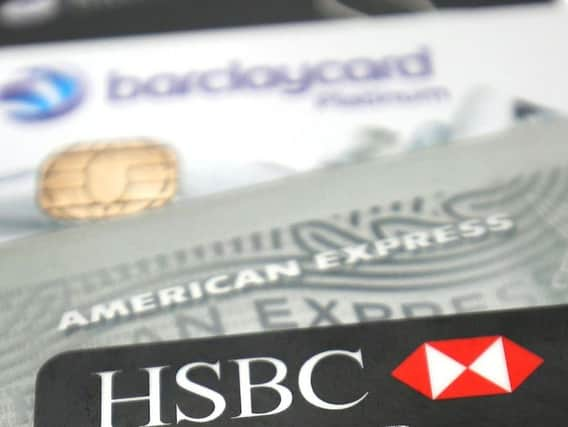More Wiganers are broke than the national average


Data released by the Government’s Insolvency Service has highlighted the alarming rates of borough residents seeking Individual Voluntary Arrangements (IVAs) and Debt Relief Orders (DROs) or filing for bankruptcy.
Last year alone, 485 people entered into an IVA - a legally binding agreement between a debtor and a creditor in order to establish repayments.
Advertisement
Hide AdAdvertisement
Hide AdMore Wigan women were subject to IVAs than men, with 281 taking this route compared to 204 of their male counterparts.
In total, the average rate for IVAs in England was 12.7 per 10,000 of the population in 2017 whereas in Wigan this figure shot to 18.9.
Likewise, 96 people filed for bankruptcy in the area, however there was a higher rate of men than women with 3.2 per 10,000 women compared to 2.4 nationally and 4.3 per 10,000 men compared to 4 nationally.
Lesley O’Halloran, assistant director for customer services at Wigan Council, said: “The welfare of our residents is of paramount importance to us and we are committed to working with a number of support services to offer guidance to those who may need it.
Advertisement
Hide AdAdvertisement
Hide Ad“When processing claims for financial assistance, we will always look to ensure customers are receiving their full entitlement to housing benefits, council tax reduction, free school meals or other discounts/exemptions and we actively signpost them to further support if needed.”
Bankruptcy, whether voluntary or applied for by creditors, will tarnish a person’s credit rating for six years.
It is mainly a solution for those who cannot pay off their debts and need to have them written off permanently.
Before this IVAs and DROs are used to try and manage a person’s debt.
Advertisement
Hide AdAdvertisement
Hide AdOnce entered into, an IVA will also remain on a person’s credit rating for six years. However, it is often used to prevent creditors from taking legal action against someone for the money they owe.
A DRO can be used to help those who owe less than £20,000, do not own their own home and do not have a lot of spare income.
In light of the concerning figures, the town hall is hoping to signpost people struggling with financial problems to a number of free advisory services.
Ms O’Halloran added: “As part of our preventative approach, we hold weekly outreach surgeries across the borough offering residents free, confidential advice and support on a range of welfare benefits. This is in addition to our ongoing money management campaign, which provides information around payday and doorstep lenders versus reputable credit unions, such as Unify.
Advertisement
Hide AdAdvertisement
Hide Ad“We aim to equip residents with the necessary knowledge to manage their finances and ensure their income is maximised. We do this by working very closely with our partners at Citizens
Advice, who provide free debt advice and personal budgeting support to provide better outcomes for those struggling with debt.
“We will support residents in any way we can and we will continue to work hard to ensure that support is tailored to their needs.”